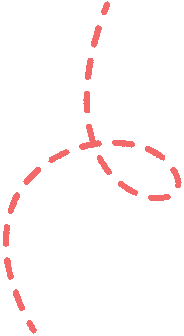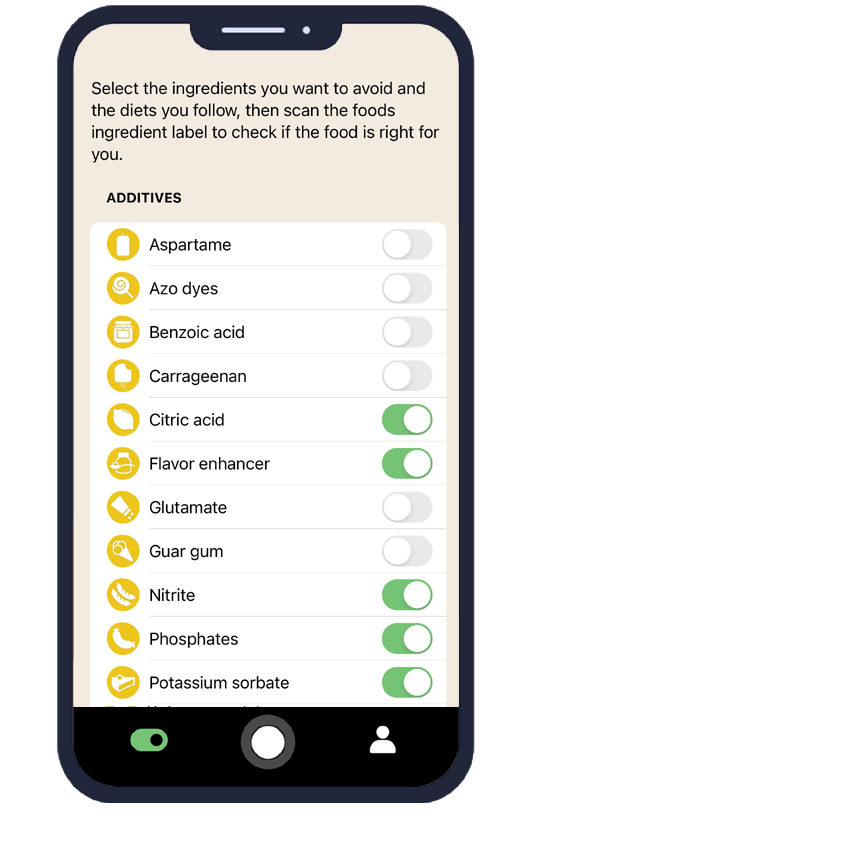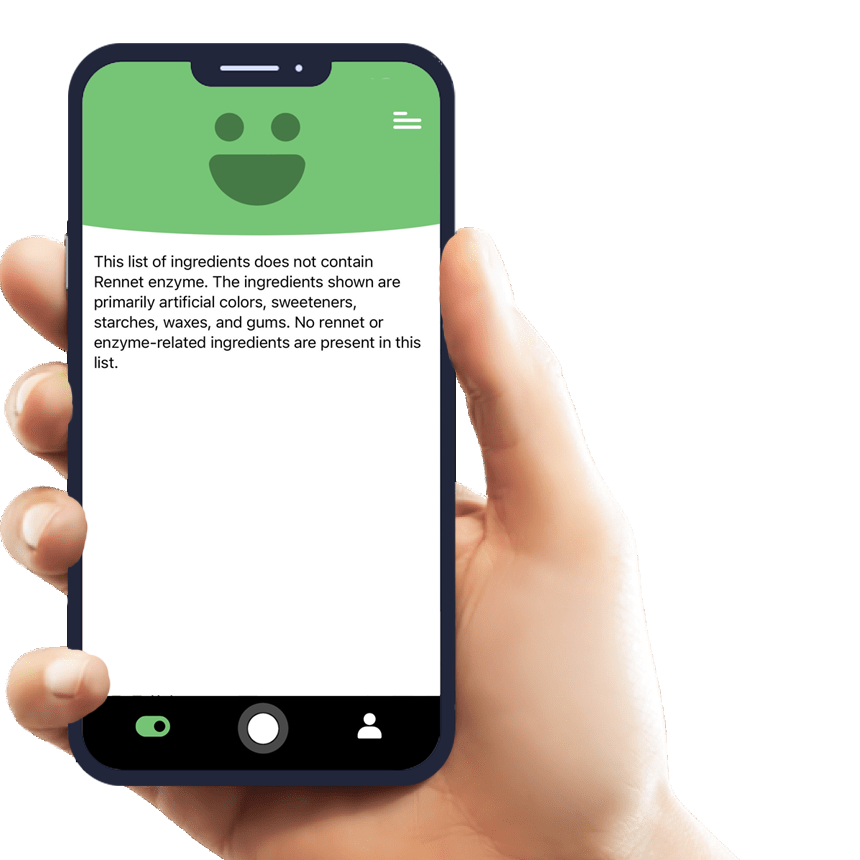Everything You Need to Know About Carrageenan and How AI Eat This Can Help
Carrageenan is a widely used food additive that appears in countless processed foods, from dairy products to plant-based alternatives. While generally recognized as safe by regulatory authorities, some consumers prefer to avoid Carrageenan due to personal dietary preferences or digestive sensitivities. Understanding what Carrageenan is and where it's found can be challenging when navigating complex ingredient lists. Fortunately, the AI Eat This app makes it simple to identify and avoid Carrageenan in food products by scanning ingredient lists in any language, helping you make informed choices that align with your dietary restrictions.
What Is Carrageenan and Where Is It Used?
Carrageenan is a natural extract derived from red seaweed, primarily used as a thickening, stabilizing, and gelling agent in food production. This food additive helps maintain texture and consistency in various products, preventing separation and creating the smooth, creamy textures consumers expect. Carrageenan is completely plant-based, making it popular in both conventional and vegan food manufacturing.
The food industry relies heavily on Carrageenan for its versatile properties. It's particularly effective in dairy and dairy-alternative products, where it prevents ingredients from separating and maintains desired thickness. Food manufacturers appreciate Carrageenan because it works effectively in small quantities and remains stable under various processing conditions.
Common Foods Containing Carrageenan
Carrageenan appears in numerous everyday food products, often where you might not expect it. Here are the most common foods that contain this additive:
- Dairy products: ice cream, chocolate milk, cottage cheese, and heavy cream
- Plant-based alternatives: almond milk, soy milk, coconut milk, and vegan cheese
- Processed meats: deli meats, sausages, and canned meats
- Desserts: puddings, jellies, and frozen treats
- Beverages: protein shakes, flavored waters, and nutritional drinks
- Infant formula and nutritional supplements
Is Carrageenan Safe? What Does the Research Say?
Regulatory Approvals and Guidelines
Major health authorities worldwide have evaluated Carrageenan safety extensively and approved its use in food products. The U.S. Food and Drug Administration (FDA) recognizes Carrageenan as Generally Recognized as Safe (GRAS) for food use. Similarly, the European Food Safety Authority (EFSA) has established acceptable daily intake levels and continues to monitor its safety.
The World Health Organization (WHO) and Food and Agriculture Organization have also reviewed Carrageenan multiple times, consistently concluding that it poses no safety concerns when used appropriately in food products. These regulatory bodies base their decisions on extensive scientific research and ongoing safety monitoring.
Current research indicates that food-grade Carrageenan, which differs from degraded Carrageenan used in laboratory studies, is safe for human consumption. The molecular weight and structure of food-grade Carrageenan prevent it from being absorbed by the digestive system, allowing it to pass through the body without causing harm.
Addressing Common Concerns
Some consumers worry about Carrageenan safety due to studies involving degraded Carrageenan, which is not used in food production. These studies often used laboratory-grade Carrageenan that undergoes acid treatment, creating a completely different substance with different properties. Food-grade Carrageenan maintains its natural molecular structure and doesn't undergo this degradation process.
While most people tolerate Carrageenan without issues, some individuals report digestive discomfort when consuming products containing this additive. However, scientific studies have not established a clear causal relationship between food-grade Carrageenan and digestive problems in healthy individuals.
How Does AI Eat This Help You Avoid Carrageenan?
The AI Eat This app revolutionizes how consumers identify food additives like Carrageenan in their daily shopping. Using advanced artificial intelligence and image recognition technology, the app instantly scans ingredient lists through your smartphone camera, identifying Carrageenan regardless of the language on the packaging.
Setting up Carrageenan avoidance in AI Eat This is straightforward and user-friendly. The app allows you to create personalized dietary filters that automatically flag products containing Carrageenan, saving time and reducing the stress of manual label reading. This feature proves especially valuable for people managing multiple dietary restrictions simultaneously.
The app's multilingual capabilities make it invaluable for travelers or those shopping for imported products. Whether the ingredient list is in Spanish, French, German, or dozens of other languages, AI Eat This recognizes Carrageenan and its various alternative names, including its E-number designation E407.
Beyond simple identification, the app provides educational information about Carrageenan, helping users understand why they might want to avoid it and suggesting alternative products that meet their dietary needs.
Who Should Consider Avoiding Carrageenan?
While Carrageenan is generally safe for most people, certain individuals may choose to avoid it based on personal preferences or health considerations. People following specific dietary protocols or those who prefer to minimize processed food additives often eliminate Carrageenan from their diets.
Some individuals report digestive sensitivity to Carrageenan, experiencing symptoms like bloating or stomach discomfort after consuming products containing this additive. Although scientific evidence for Carrageenan intolerance remains limited, people who notice these symptoms may benefit from avoiding products containing this ingredient.
Parents choosing to limit their children's exposure to food additives might also prefer Carrageenan-free alternatives. Additionally, individuals following certain clean eating approaches or whole food diets often avoid Carrageenan as part of their broader commitment to minimally processed foods.
Tips for Maintaining a Carrageenan-Free Diet
Successfully avoiding Carrageenan requires strategic shopping and meal planning approaches. Focus on purchasing whole, unprocessed foods whenever possible, as these naturally don't contain added Carrageenan. Fresh fruits, vegetables, grains, and proteins provide nutrition without food additives.
When buying packaged foods, prioritize products with short, recognizable ingredient lists. Many organic and natural food brands specifically avoid using Carrageenan in their formulations, making them safer choices for those following dietary restrictions.
Learn to identify Carrageenan's alternative names and codes on ingredient labels. Besides "Carrageenan," look for E407, Irish moss extract, or chondrus crispus extract. The AI Eat This app eliminates this guesswork by automatically recognizing all these variations.
Consider making homemade versions of commonly consumed products that typically contain Carrageenan. Homemade nut milks, ice creams, and puddings allow complete control over ingredients while often providing superior taste and nutrition.
Conclusion
Understanding Carrageenan and its presence in food products empowers consumers to make informed dietary choices that align with their personal health goals and dietary restrictions. While regulatory authorities consider Carrageenan safe for consumption, individuals seeking to avoid this food additive now have powerful tools to support their choices.
The AI Eat This app transforms the challenge of identifying Carrageenan in food products into a simple, efficient process. By leveraging cutting-edge technology to scan and analyze ingredient lists, the app supports consumers in maintaining their preferred dietary approach without the stress of manual label reading.
Whether you're avoiding Carrageenan due to digestive sensitivities, dietary preferences, or simply wanting to minimize processed food additives, having reliable tools makes the journey much easier. Download AI Eat This for free testing today and take control of your food choices with confidence!

70 filters
With over 70 filters, you can easily avoid certain ingredients and follow your dietary preference.

Paleo

Pescetarian

Ultra-processed food

Vegan







































































